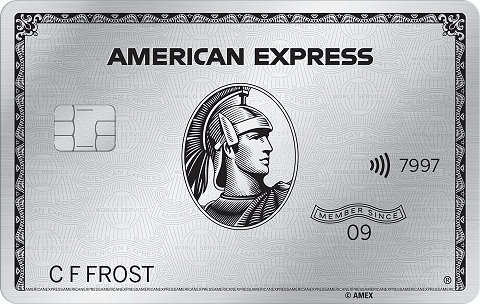Is Travel Insurance Worth It in April 2024?

Many or all of the products featured here are from our partners who compensate us. This influences which products we write about and where and how the product appears on a page. However, this does not influence our evaluations. Our opinions are our own. Here is a list of our partners and here's how we make money.
Travel can be expensive. Insurance protects your nonrefundable vacation investment if the unexpected occurs. But is travel insurance worth it?
The answer will depend on whether your trip is refundable, where you're going, whether you'll have health coverage at your destination and how much coverage you already get from your credit card. Here are some key topics to understand when deciding if travel insurance is right for you.
What does travel insurance cover?
Travel insurance (or trip insurance) covers a number of travel-related risks, from flight cancellations to lost bags to medical emergencies.
The dollar amount of your coverage depends on the policy you bought and where and when you bought it. Most travel insurance providers offer several different policies to choose from, with higher or lower levels of coverage and higher or lower prices to match.
» Learn more: What to know before buying travel insurance
You can buy policies that cover a single trip, multiple trips or a full year. You can buy an individual policy or one that covers your entire family. There are many companies that offer policies, with Allianz and Travel Guard among the best-known. Here is a chart showing the benefits and coverage levels available on some Allianz policies.
OneTrip Basic | OneTrip Prime | AllTrips Basic | AllTrips Premier | |
|---|---|---|---|---|
Trip cancellation | Up to $10,000. | Up to $100,000. | N/A. | $2,000 to $15,000. |
Trip interruption | Up to $10,000. | Up to $150,000. | N/A. | $2,000 to $15,000. |
Emergency medical | $10,000. | $25,000. | $20,000. | $50,000. |
Emergency medical transport | $50,000. | $500,000. | $100,000. | $500,000. |
Baggage loss/damage | $500. | $1,000. | $1,000. | $2,000. |
Baggage delay | $200. | $300. | $200. | $2,000. |
Travel delay | $300 / daily limit $150. | $800 / daily limit $200. | $600 / daily limit $200. | $1,500 / daily limit $300. |
Rental car damage/ theft | N/A. | N/A. | $45,000. | $45,000. |
Travel accident | N/A. | N/A. | $25,000. | $50,000. |
Pre-existing conditions | Covered if certain criteria are met. | Covered if certain criteria are met. | N/A. | Covered if certain criteria are met. |
NerdWallet recently analyzed various travel insurance policies to help you choose the plan that best aligns with your travel goals. Check out our results here: Best Travel Insurance Companies Right Now.
» Learn more: Does travel insurance cover medical expenses?
What does travel insurance NOT cover?
Incidents not covered by your travel insurance vary by policy and provider.
Pre-existing medical conditions are often excluded from coverage, meaning your benefits don't apply to claims related to that condition. Some policies cover pre-existing medical conditions if you meet certain criteria, for example if you purchased the policy within 14 days of paying for your trip and if you were well enough to travel when you booked your trip.
» Learn more: The best travel credit cards might surprise you
Plan on mountain-climbing or engaging in other dangerous activities on your trip? Many policies won't cover you if something goes wrong unless you buy a policy that specifically includes adventure sports. World Nomads travel insurance, for example, offers the Explorer plan, which includes coverage for cave diving, cliff jumping, heli-skiing and many other activities that are considered risky.
Other incidents excluded from a trip insurance policy may involve war, acts of terrorism and the use of alcohol, which can cause your injuries to be designated as "self-inflicted," or the use of drugs, which may be illegal.
If you want full flexibility to cancel your trip you'll need to find a policy that allows you to purchase a Cancel For Any Reason (CFAR) add-on. This additional benefit does exactly what the name implies and allows you to cancel your trip for any reason. Typically, you'll get around 75% of your prepaid nonrefundable trip expenses back, although exact timing and percentages vary by policy.
» Learn more: Cancel For Any Reason (CFAR) travel insurance explained
When is travel insurance not necessary?
Travel insurance primarily covers two aspects of your trip — your nonrefundable reservations and your medical expenses while traveling.
If all of your reservations can be canceled without penalty, then trip cancellation or trip interruption coverage isn't necessary. But even if your trip isn't 100% refundable, insurance may not be necessary. For example, a cheap flight and hotel stay may not be worth covering, though you may still want to purchase travel insurance for medical situations.
Medical coverage typically is not necessary if you have a U.S.-based health insurance policy and you're traveling within the U.S. In those cases, you probably already have adequate coverage for illness or injury.

When is trip insurance worth it?
There are a few reasons that travel insurance can be worthwhile: to protect your nonrefundable trip costs, your luggage or your health.
When should you get trip cancellation and/or trip interruption insurance?
If you would lose the money you paid for your flights, accommodations, rental car, or activities if you had to cancel or go home early, travel insurance that specifically includes trip cancellation and trip interruption is probably a good idea. If your trip is canceled or interrupted for a covered reason, this protection will cover your reservations.
For example, if you're planning to travel to a destination that could have weather-related issues, like hurricanes in the Caribbean, travel insurance may protect your noncancelable reservations. Some policies also provide emergency evacuation to escape dangerous situations. However, if you try to purchase travel insurance after the storm poses a risk, the insurance probably will not protect you.
When should you get baggage delay and/or lost luggage coverage?
Imagine if you go on a one week trip and your checked baggage is lost or delayed. While you’re waiting to get your luggage, baggage delay insurance will reimburse you for any essentials (i.e. toiletries, medicine, socks, clothing, etc.) that you may need to purchase because you don’t have your own things.
But what if the worst case scenario happens and your bag is just lost or stolen? Lost luggage insurance will reimburse you for your misplaced bag, up to a specified dollar amount.
If you’re only traveling with a carry-on, you don’t need these two types of coverage.
When should you purchase travel medical insurance?
U.S.-based health insurance policies generally offer coverage anywhere within the U.S. But if you get sick or hurt when you travel internationally, some policies like Medicare may not cover you.
Even if your health insurance covers you outside the country, doctors at your destination may not accept it. Without travel insurance, you could be stuck paying for these bills out of pocket, then seeking reimbursement from your healthcare provider.
When should you purchase CFAR?
Most travel insurance policies won’t help you get your expenses if you cancel for a “non-covered” reason, like when your plans change or you simply don’t want to go anymore. That’s when it might be good to purchase CFAR.
If you’ve booked a trip but think that you may need to cancel for a reason that’s not covered by trip cancellation, the CFAR add-on will allow you to get up to 50-75% of your nonrefundable trip costs back as long as you cancel at least 2 - 3 days before the trip starts. The add-on must also be purchased within a specific time of the initial trip deposit (usually 14 - 21 days).
What can be an example of a cancellation that’s reimbursable under CFAR? Let’s say you book a trip with your significant other but you break up a week before the trip and don’t want to go alone. Or you book a trip really far in advance but when the date nears, you realize that you don’t want to go anymore. CFAR will be helpful for you in these instances.
When should you purchase travel insurance even though you already have a credit card that provides it?
If you already have some travel insurance protections (e.g., trip cancellation, trip interruption, baggage delay) from your credit card, but you feel that the limits are insufficient, consider purchasing a comprehensive travel insurance plan or a standalone travel medical insurance policy to protect you in case of medical emergencies on your trip.
» Learn more: The majority of Americans plan to travel this year, according to recent NerdWallet study
Where to buy travel insurance
If you booked your trip through a travel agent, you can likely purchase coverage through them. That includes online travel booking engines like Expedia. If you're taking a cruise, you're usually offered the chance to purchase coverage during the booking process. Similarly, airlines may offer you certain types of coverage when you book a flight through their website. If you have an award booking, you have travel insurance options too.
Another option: Purchase travel insurance directly through the website of a travel insurance company, like Allianz, AXA or Travel Guard.
How much does travel insurance cost?
The cost of travel insurance is based on the specifics of your trip. The best way to get a price is to request a quote through the websites of travel insurance providers. Or you can compare multiple insurers in one place with a consolidator like InsureMyTrip.com or SquareMouth.
Should you rely on credit card travel insurance instead?
Many travel credit cards provide certain types of coverage in case your flight is delayed or canceled, your rental car is damaged, or your luggage is lost or delayed.
Here are a few credit cards offering travel protections that could serve as an alternative to travel insurance. But even with these cards, the benefits have a lot of fine print.
• Trip delay: Up to $500 per ticket for delays more than 12 hours.
• Trip cancellation: Up to $10,000 per person and $20,000 per trip. Maximum benefit of $40,000 per 12-month period.
• Trip interruption: Up to $10,000 per person and $20,000 per trip. Maximum benefit of $40,000 per 12-month period.
• Baggage delay: Up to $100 per day for five days.
• Lost luggage: Up to $3,000 per passenger.
• Travel accident: Up to $500,000.
• Rental car insurance: Up to $75,000.
• Trip delay: Up to $500 per ticket for delays more than 6 hours.
• Trip cancellation: Up to $10,000 per person and $20,000 per trip. Maximum benefit of $40,000 per 12-month period.
• Trip interruption: Up to $10,000 per person and $20,000 per trip. Maximum benefit of $40,000 per 12-month period.
• Baggage delay: Up to $100 per day for five days.
• Lost luggage: Up to $3,000 per passenger.
• Travel accident: Up to $1 million.
• Rental car insurance: Up to the actual cash value of the car.
• Trip delay: Up to $500 per trip for delays more than 6 hours.
• Trip cancellation: Up to $10,000 per trip. Maximum benefit of $20,000 per 12-month period.
• Trip interruption: Up to $10,000 per trip. Maximum benefit of $20,000 per 12-month period.
• Lost luggage: Up to $3,000 per passenger.
• Travel accident: Up to $500,000.
• Rental car insurance: Up to $75,000.
Terms apply.
• Trip delay: Up to $500 per ticket for delays more than 12 hours.
• Trip cancellation: Up to $10,000 per trip. Maximum benefit of $20,000 per 12-month period.
• Trip interruption: Up to $10,000 per trip. Maximum benefit of $20,000 per 12-month period.
• Baggage delay: Up to $100 per day for five days.
• Lost luggage: Up to $3,000 per passenger.
• Travel accident: Up to $500,000.
• Rental car insurance: Up to the actual cash value of the car.
These are attractive benefits, but the coverage may not be as broad as you would get buying insurance. For example, AmEx cards only cover round-trip travel, so if you don’t have a return flight booked yet, you might want to consider additional coverage.
Secondly, only the Chase Sapphire Reserve® provides emergency medical and dental coverage. The other cards don’t.
Plus, these cards can come with steep annual fees that may be more than you would pay for a travel insurance policy. So don't sign up for a card just to cover one trip unless you've compared costs.
» Learn more: The best credit cards for travel insurance benefits
So, is travel insurance worth it?
If you've paid a considerable sum for a nonrefundable vacation, travel insurance is likely a good idea. International travelers who need coverage in case they get sick or injured should also consider buying a policy. If troubles arise, you'll be glad that you're protected.
How to maximize your rewards
You want a travel credit card that prioritizes what’s important to you. Here are our picks for the best travel credit cards of 2024, including those best for:
Flexibility, point transfers and a large bonus: Chase Sapphire Preferred® Card
No annual fee: Bank of America® Travel Rewards credit card
Flat-rate travel rewards: Capital One Venture Rewards Credit Card
Bonus travel rewards and high-end perks: Chase Sapphire Reserve®
Luxury perks: The Platinum Card® from American Express
Business travelers: Ink Business Preferred® Credit Card
on Chase's website
1x-10x
Points60,000
Pointson Chase's website
1x-5x
Points60,000
Pointson Chase's website
1x-2x
Points50,000
Points







